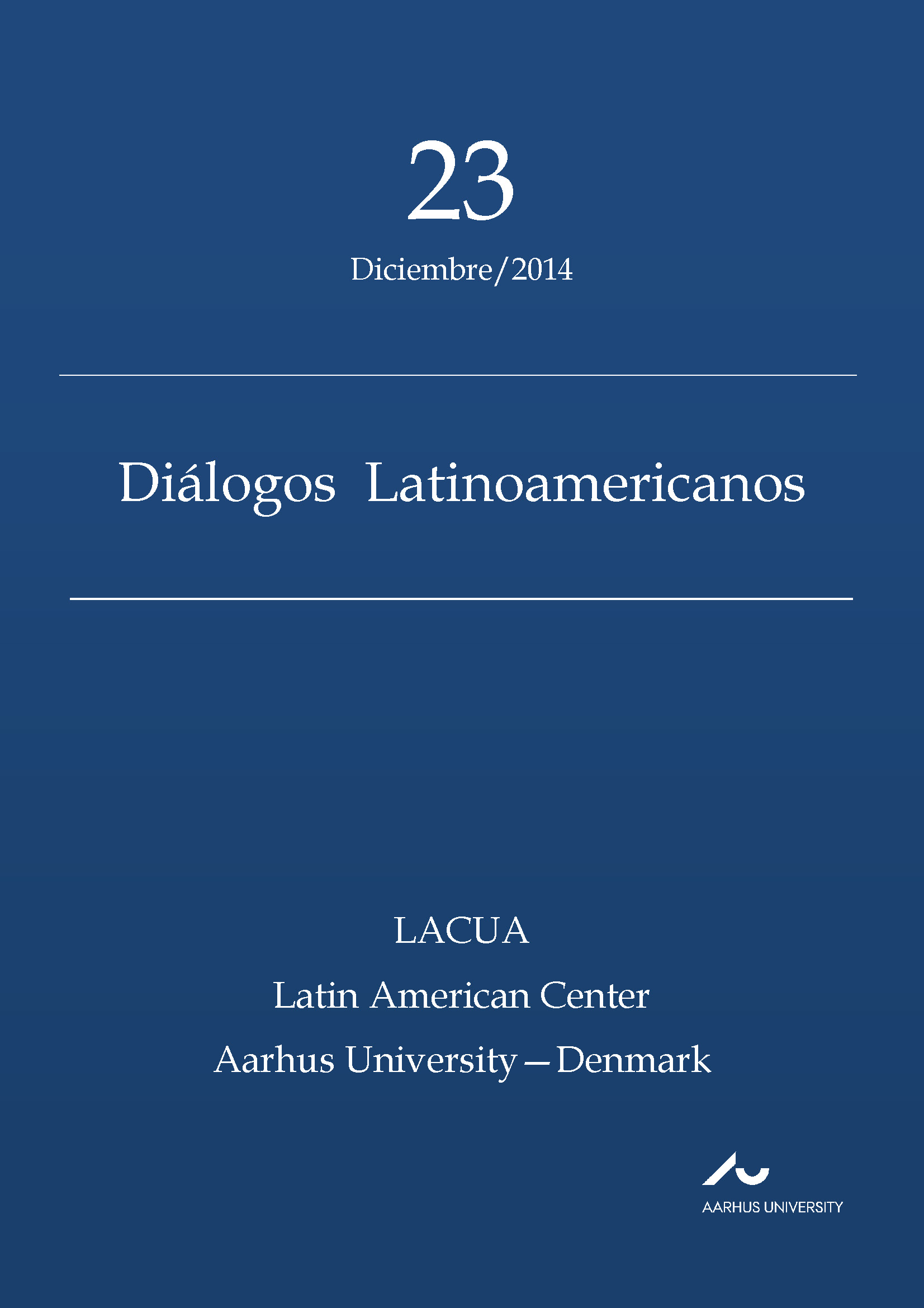Fresa, memorias y hombre nuevo. Sujeto e ideología en Gutiérrez Alea
DOI:
https://doi.org/10.7146/dl.v15i23.113127Keywords:
Cuba, ideology, subject, film, Tomás Gutiérrez Alea, revolutionAbstract
The main aim of this article is to explore the relation between ideology and subject in the
work of the Cuban film director, Tomás Gutiérrez Alea. The analysis will be based on two
of his major works, Memorias del subdesarrollo (Memories of Underdevelopment), from
1968, and Fresa y chocolate (Strawberry and Chocolate), 1993. Special emphasis will be
put on the socio-political context of these films, i.e. the Revolution and its utopiannationalist
discourse and ideology as well as the consequences of this context for the
individual and collective Cuban subject. Main conclusions of the analysis are that Alea’s
criticism of the mechanisms of exclusion created by the Revolution is fundamental and, that
it goes beyond the overt criticism of homophobic practices in Fresa y chocolate and of the
bourgeois subject in Memorias. Alea, although positively engaged in the revolutionary
process, demonstrates a capacity of fundamental social criticism and an essential ambiguity,
in which the abyss between the individual subject and the totality of the Revolution is a
central question.
References
Arcocha, Juan (1962). Los muertos andan solos. Ediciones R. La Habana.
Bajtín, Mihail (1997). Estética de la creación verbal. Siglo XXI. México
D.F.
Benveniste, Emile (1971). Problemas de lingüística general. Gallimard.
París.
Buber, M. (1993) Tú y yo. Caparrós Eds. Madrid.
Carpentier, Alejo (1978). La consagración de la primavera. Letras Cubanas.
La Habana.
Castro, Fidel: “Palabras a los intelectuales”. En: Obras Escogidas, Tomo I.
Ed. Fundamentos. Madrid.
Chanan, Michael (1990). Introduction. In: Memories of Underdevelopment,
Series Rutgers Films in Print. Rutgers University Press, New Brunswick.
Desnoes, Edmundo (1961). No hay problema. Ediciones R. La Habana.
. (1965). El cataclismo. Ediciones R. La Habana.
. (2006). Memorias del subdesarrollo. Mono Azul Eds. Sevilla.
. (2006). Memorias del desarrollo. Mono Azul Eds. Sevilla.
Fornet, Ambrosio (1987). (Selección, prólogo y notas): Alea, un
retrospectiva crítica. Ed. Letras Cubanas. La Habana.
Gustafsson, Jan (2005). Mellem jegets tomhed og diskursens ubærlige
tyngde. Subjektivitet og interpellation i ”Minder fra underudviklingen”.
In: Degn, Gustafsson og Henriksen, red.: Subjektivitet, sprog og erfaringi en transkulturel kontekst – Otte bud på en socialhumanistisk forskning.
Aalborg, Aalborg Universitetsforlag.
. (2012). The Nation and the Revolution – Techniques of Power and
Interpellation in Revolutionary Cuba. In: Bjerre-Poulsen, Clausen &
Gustafsson (eds.): Projections of Power in the Americas. New York,
Routledge 2012.
Gutiérrez Alea, Tomás (1982). Dialéctica del espectador. Ed. Unión. La
Habana.
. (1980). Memorias de Memorias. Revista Casa de las Américas no. 122.
La Habana.
. (1987). Memorias del subdesarrollo, apuntes de trabajo. En: Memories
of Underdevelopment, Series Rutgers Films in Print. Rutgers University
Press, New Brunswick.
Holquist Michael (1990). Dialogism. Routledge. New York.
Laclau, Ernesto y Mouffe, Chantal (1985). Hegemony and Socialist
Strategy. Verso. Londres.
Laclau, Ernesto (2005). On Populist Reason, Verso. Londres.
Leclercq, (2004). El lagarto en busca de una identidad. Madrid, Vervuert
Iberoamericana.
Nuez, Iván de la (1998). La balsa perpetua – soledad y conexiones de la
cultura cubana. Editorial Cassiopeia, Barcelona.
Peri-Blanes, Jaume (2011). Ironía, ambivalencia y política en Memorias del
subdesarrollo de Edmundo Desnoes. Rilce: Revista de Filología
Hispánica, Pamplona. Volumen 27. Julio-diciembre 2011.
Rojas, Rafael (2006). Ideología, cultura y memoria. Dilemas simbólicos de
la transición. In: Pérez-Stable, Marifeli (ed.): Cuba en el siglo XXI.
Ensayos sobre la transición. Editorial Colibrí, Madrid.
Santana Fernández de Castro, Astrid (2011). Literatura y cine. Lecturas
cruzadas sobre las Memorias del subdesarrollo. Universidade de
Santiago de Compostela, Santiago de Compostela.
Santí, Enrico M. (1998). Fresa y chocolate: The Rhetoric of Cuban
Reconciliation. MLN. Volume 113, Number 2, March 1998 (Hispanic
Issue). Pp. 407-425.
Santorelli, Matteo (sin fecha): From Others to the Other: A
Psychoanalytical Reading of George Herbert Mead.
http://academia.edu/2701230/From_the_others_to_the_Other_a_Psychoa
nalytical_Reading_of_George_Herbert_Mead
Soles, Diana R. (2010). Administración de la crítica: tácticas de censores y
cineastas cubanos en los noventa. In: Tinajero, Araceli (ed.): Cultura y
letras cubanas en el siglo XXI. Madrid, Iberoamericana/Verwuert.
Zizek, Slavoj (1992). El sublime objeto de la ideología. Siglo XXI. México
D.F
Downloads
Published
How to Cite
Issue
Section
License
Counting from volume 31 (2022), articles published in Diálogos Latinoamericanos are licensed under CC-BY 4.0. Read more about the license terms here https://creativecommons.org/licenses/by/4.0/.
No Creative Commons license applied on volumes 1-30. All rights reserved by the authors. Readers may download, read, and link to the articles, but they cannot republish the articles.
With the publication of volume 31 (2022), authors retain the full copyright to their articles and give Diálogos Latinoamericanos the right to the first publication. Authors also retain copyright to earlier versions of manuscripts, such as the submitted (pre-print) and the accepted manuscript (post-print).
Copyright to articles published in volumes 1-30 is held by the authors.





